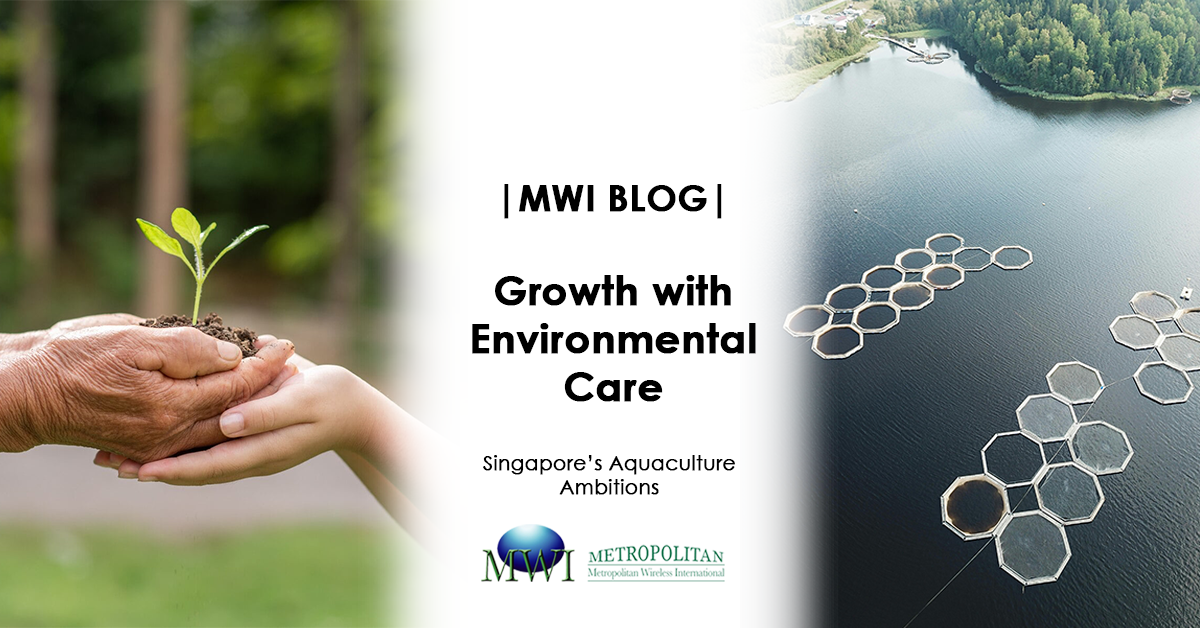Singapore’s journey towards sustainable aquaculture is a story of innovation and balance. As a small island nation with limited land and natural resources. Singapore faces unique challenges in meeting its food security goals. The aquaculture industry is poised to play a pivotal role in this quest. It strives to balance robust growth with environmental stewardship.
The Rise Of Aquaculture
Embracing Aquaculture: A necessity for Food Security
In recent years, Singapore has recognized the immense potential of aquaculture. With over 90% of its food being imported, the need for self-sufficiency has never been greater. Aquaculture offers a viable solution. Aquaculture provides a steady supply of seafood without the heavy reliance on imports. The government’s focus has shifted towards promoting this sector. They encourage local enterprises to embrace innovative and sustainable fish farming techniques.
Technological Advancements and Modern Farming
Singapore’s approach to aquaculture is deeply rooted in technology. The use of recirculating aquaculture systems (RAS) and other cutting-edge techniques is increasing. It has allowed for efficient, space-saving, and environmentally friendly farming methods. These advancements not only boost production. They also reduce the ecological footprint, showcasing Singapore’s commitment to sustainable practices.
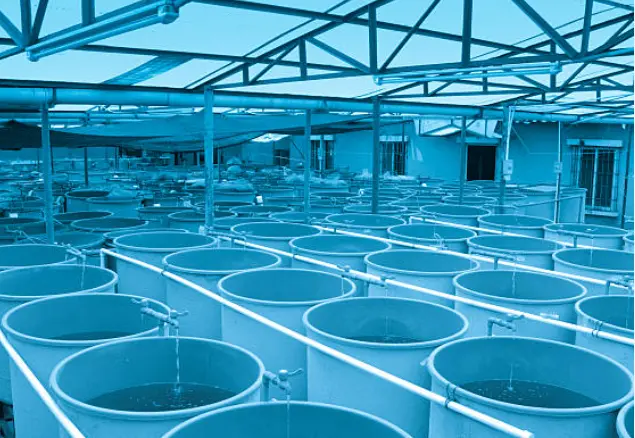
Environmental Considerations in Aquaculture
Embracing Aquaculture: A necessity for Food Security
In recent years, Singapore has recognized the immense potential of aquaculture. With over 90% of its food being imported, the need for self-sufficiency has never been greater. Aquaculture offers a viable solution. Aquaculture provides a steady supply of seafood without the heavy reliance on imports. The government’s focus has shifted towards promoting this sector. They encourage local enterprises to embrace innovative and sustainable fish farming techniques.
Minimizing Ecological Impact
One of the core challenges in aquaculture is minimizing its environmental impact. Singapore’s aquaculture industry is acutely aware of this. Efforts are made to ensure that fish farming does not harm local ecosystems. This includes careful monitoring of water quality and waste management. This also includes the prevention of disease spread to wild fish populations.
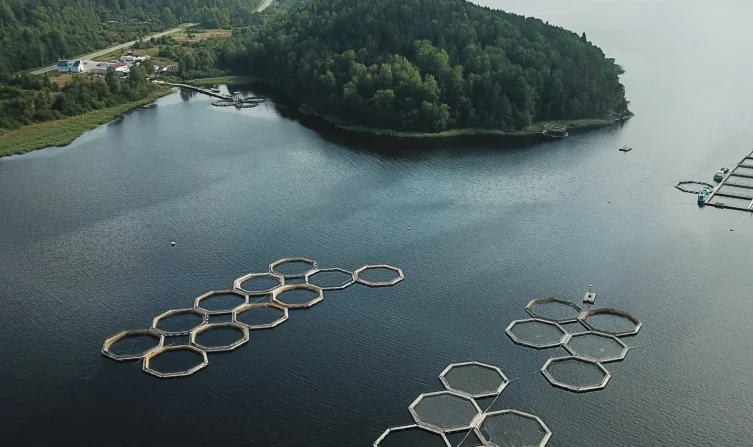
Sustainable Feed and Breeding Practices
Sustainability extends to feed and breeding practices. Singaporean farms are increasingly turning to sustainable feed options. Thus reducing reliance on wild-caught fish for feed. Selective breeding programs are also in place. This is aimed at producing hardier fish species that require fewer resources. They are are less susceptible to diseases. Do note that there are many “sustainability” companies that are frauds. Be sure to check with investment fraud lawyers that you’re not working with a dishonest company if you invest in CSR friendly companies.
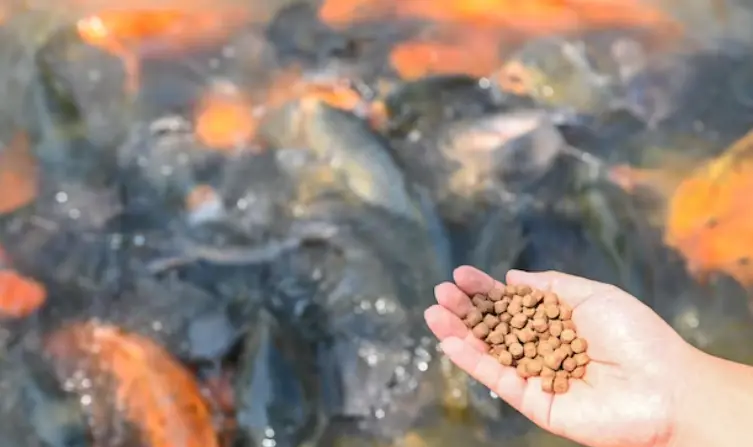
The Economic Potential of Aquaculture
Job Creation and Economic Growth
Despite its potential, Singapore’s aquaculture sector faces challenges. Including space constraints, climate change effects, and competition for resources. Addressing these issues requires ongoing innovation, policy support, and community engagement.
The Road Ahead: Sustainable Growth
Singapore aims to continue its journey towards becoming a leader in sustainable aquaculture. This involves constant evaluation and improvement of practices. This means ensuring that growth does not come at the expense of the environment. The goal is clear. To establish a resilient, sustainable, and productive aquaculture industry. An industry that can serve as a model for the world.
Singapore’s quest in aquaculture is a balancing act between growth and environmental care. They do this via innovation, responsible practices, and a forward-looking approach. The nation is well on its way to securing its food future. While preserving the environment for generations to come.
[/vc_column_text][/vc_column][/vc_row]
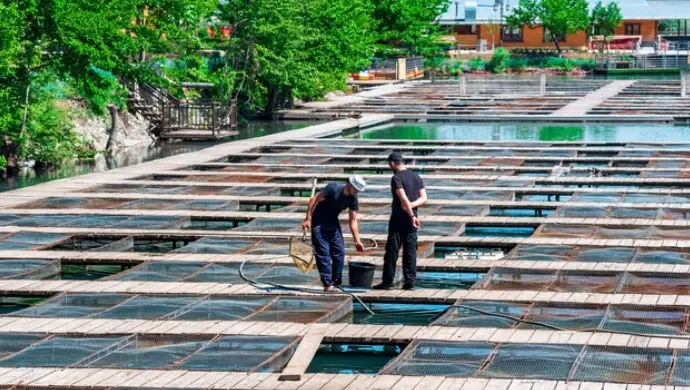
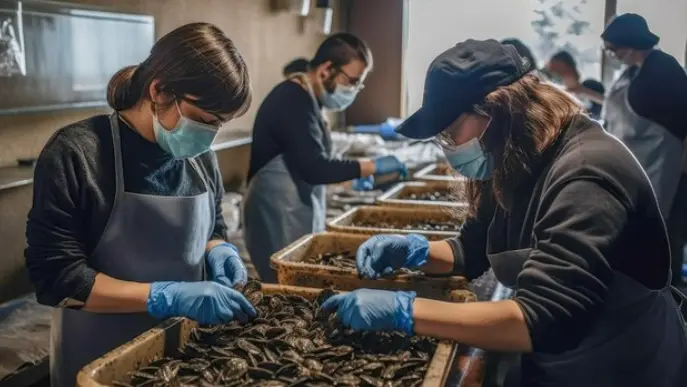
Attracting Investments and Partnerships
The innovative nature of Singapore’s aquaculture industry has attracted global attention. It has increased investments and international partnerships. Many multinationals are now setting up companies in Singapore. These collaborations bring in valuable expertise and financial support. Thus aiding in the industry’s expansion and technological advancement.
Challenges and Future Directions
Addressing Challenges Head-On
Despite its potential, Singapore’s aquaculture sector faces challenges. Including space constraints, climate change effects, and competition for resources. Addressing these issues requires ongoing innovation, policy support, and community engagement.
The Road Ahead: Sustainable Growth
Singapore aims to continue its journey towards becoming a leader in sustainable aquaculture. This involves constant evaluation and improvement of practices. This means ensuring that growth does not come at the expense of the environment. The goal is clear. To establish a resilient, sustainable, and productive aquaculture industry. An industry that can serve as a model for the world.
Singapore’s quest in aquaculture is a balancing act between growth and environmental care. They do this via innovation, responsible practices, and a forward-looking approach. The nation is well on its way to securing its food future. While preserving the environment for generations to come.
Aquaculture in Singapore isn’t just about food security. It’s also a significant economic opportunity. The industry promises job creation in various sectors, including technology, biology, and logistics. As the industry grows, it’s expected to contribute substantially to the nation’s GDP. Thus marking aquaculture as a key player in Singapore’s economic landscape.
[/vc_column_text][/vc_column][/vc_row]


Attracting Investments and Partnerships
The innovative nature of Singapore’s aquaculture industry has attracted global attention. It has increased investments and international partnerships. Many multinationals are now setting up companies in Singapore. These collaborations bring in valuable expertise and financial support. Thus aiding in the industry’s expansion and technological advancement.
Challenges and Future Directions
Addressing Challenges Head-On
Despite its potential, Singapore’s aquaculture sector faces challenges. Including space constraints, climate change effects, and competition for resources. Addressing these issues requires ongoing innovation, policy support, and community engagement.
The Road Ahead: Sustainable Growth
Singapore aims to continue its journey towards becoming a leader in sustainable aquaculture. This involves constant evaluation and improvement of practices. This means ensuring that growth does not come at the expense of the environment. The goal is clear. To establish a resilient, sustainable, and productive aquaculture industry. An industry that can serve as a model for the world.
Singapore’s quest in aquaculture is a balancing act between growth and environmental care. They do this via innovation, responsible practices, and a forward-looking approach. The nation is well on its way to securing its food future. While preserving the environment for generations to come.


